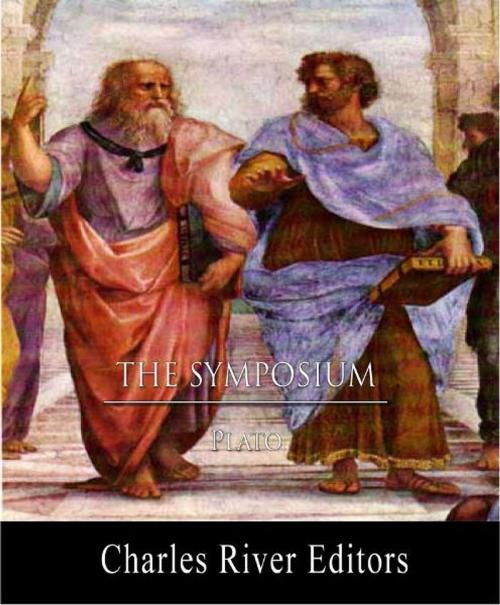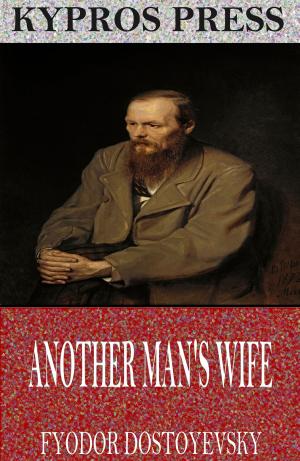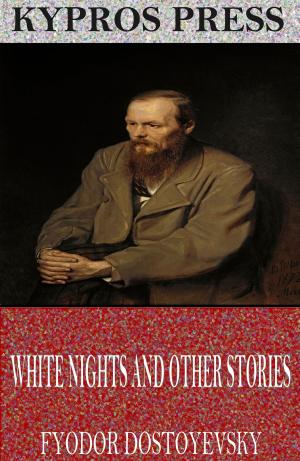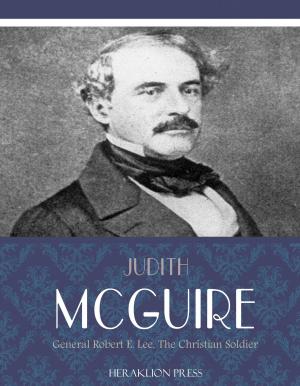The Symposium (Illustrated Edition)
Nonfiction, Religion & Spirituality, Philosophy, Logic, Ancient, History, Ancient History, Greece| Author: | Plato | ISBN: | 9781619827912 |
| Publisher: | Charles River Editors | Publication: | February 15, 2012 |
| Imprint: | Language: | English |
| Author: | Plato |
| ISBN: | 9781619827912 |
| Publisher: | Charles River Editors |
| Publication: | February 15, 2012 |
| Imprint: | |
| Language: | English |
To say Socrates was an influence on Plato would be a vast understatement; historians today still struggle to distinguish Socrates philosophical beliefs from Platos, because much of Platos writings consisted of Socratic dialogues, in which the main character, Socrates, discusses the topic of the writing with his followers. Yet for all of the influence of Socrates life on Plato, it was Socrates death around 399 B.C. that truly shaped him. Plato was so embittered by Socrates trial in Athens that he completely soured on Athenian democracy, and he began to travel around the Mediterranean, studying topics like mathematics, honing his approach to philosophical thinking, and continuing to refine his philosophical beliefs. About a decade later, Plato returned to Athens and founded his famous Platonic Academy around 387 B.C., which he oversaw for 40 years until his death. One of Platos philosophical beliefs was that writing down teachings was less valuable than passing them down orally, and several of Platos writings are responses to previous writings of his, so Platos personally held beliefs are hard to discern. However, Plato educated several subsequent philosophers, chief among them Aristotle, and his writings eventually formed the backbone of Western philosophy. One of Platos most famous works is The Symposium, about a great dinner conversation led by Socrates that discusses the definition and meaning of love. Plato doesnt give readers a clue as to when the Symposium took place, other than alluding to the division of Arcadia after the destruction of Mantinea. This took place in the year B.C. 384, half way through Platos life. Of course, Socrates had been dead for 15 years by then. The Symposium is connected with the dialogue Phaedrus both in style and subject; they are the only Dialogues of Plato in which love is discussed at length. In both of them philosophy is regarded as a sort of enthusiasm or madness. This edition is specially formatted with images.
To say Socrates was an influence on Plato would be a vast understatement; historians today still struggle to distinguish Socrates philosophical beliefs from Platos, because much of Platos writings consisted of Socratic dialogues, in which the main character, Socrates, discusses the topic of the writing with his followers. Yet for all of the influence of Socrates life on Plato, it was Socrates death around 399 B.C. that truly shaped him. Plato was so embittered by Socrates trial in Athens that he completely soured on Athenian democracy, and he began to travel around the Mediterranean, studying topics like mathematics, honing his approach to philosophical thinking, and continuing to refine his philosophical beliefs. About a decade later, Plato returned to Athens and founded his famous Platonic Academy around 387 B.C., which he oversaw for 40 years until his death. One of Platos philosophical beliefs was that writing down teachings was less valuable than passing them down orally, and several of Platos writings are responses to previous writings of his, so Platos personally held beliefs are hard to discern. However, Plato educated several subsequent philosophers, chief among them Aristotle, and his writings eventually formed the backbone of Western philosophy. One of Platos most famous works is The Symposium, about a great dinner conversation led by Socrates that discusses the definition and meaning of love. Plato doesnt give readers a clue as to when the Symposium took place, other than alluding to the division of Arcadia after the destruction of Mantinea. This took place in the year B.C. 384, half way through Platos life. Of course, Socrates had been dead for 15 years by then. The Symposium is connected with the dialogue Phaedrus both in style and subject; they are the only Dialogues of Plato in which love is discussed at length. In both of them philosophy is regarded as a sort of enthusiasm or madness. This edition is specially formatted with images.















